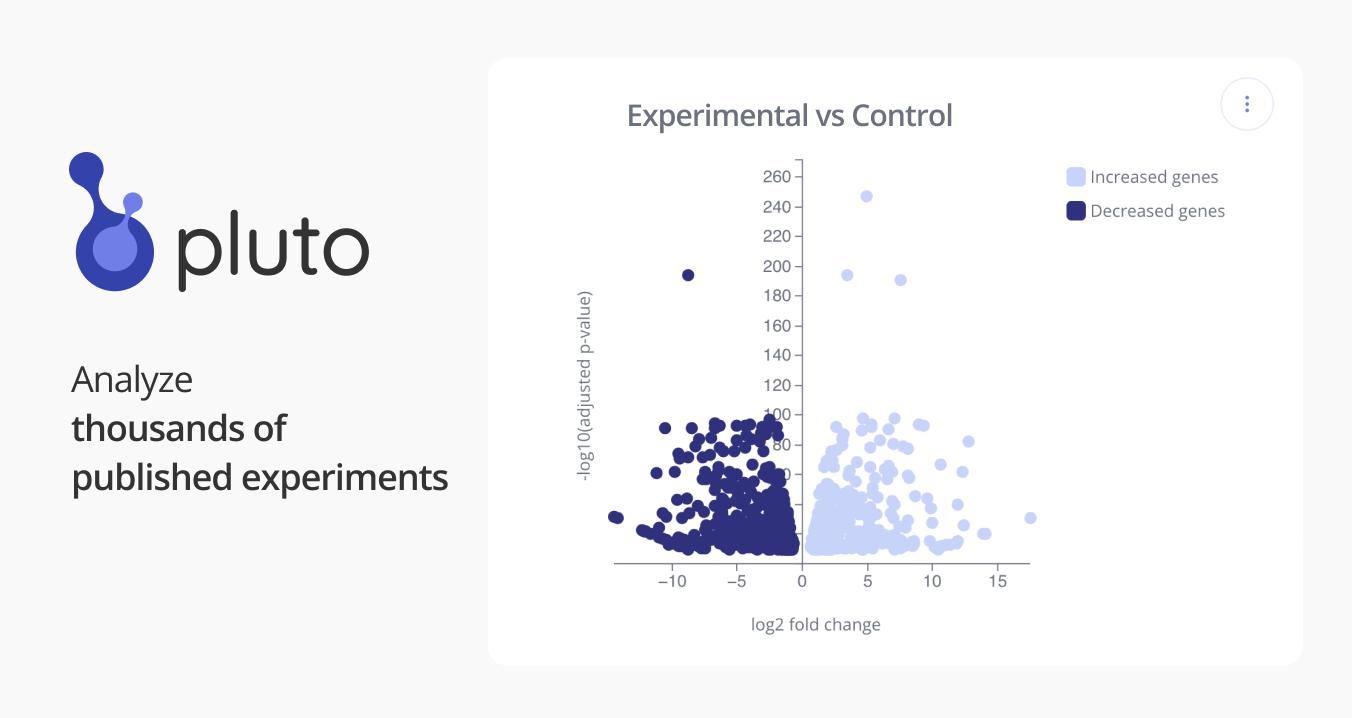Pluto Bioinformatics
GSE107184: The role of KLF7 in pancreatic adenocarcinoma (PDAC) progression
Bulk RNA sequencing
Pancreatic ductal adenocarcinoma (PDAC) is an aggressive cancer with a dismal prognosis. Currently, there is no effective therapy to treat PDAC, and thus detailed molecular and functional evaluation of PDAC is needed to identify and develop better therapeutic strategies. Here we show that the transcription factor Kruppel-like factor 7 (KLF7) is overexpressed in PDAC and that inhibition of KLF7 blocks PDAC tumor growth and metastasis in cell culture and in mice. KLF7 expression in PDAC can be upregulated due to activation of a MAP kinase pathway or inactivation of the tumor suppressor p53, two alterations that occur in a large majority of PDACs. ShRNA-mediated knockdown of KLF7 inhibits the expression of interferon-stimulated genes (ISGs), which are necessary for KLF7-mediated PDAC tumor growth and metastasis. KLF7 knockdown also results in the downregulation of Discs Large MAGUK Scaffold Protein 3 (DLG3), resulting in Golgi complex fragmentation, and reduced protein glycosylation leading to reduced secretion of cancer-promoting growth factors such as chemokines. Genetic or pharmacological activation of Golgi complex fragmentation blocks PDAC growth and metastasis similar to KLF7 inhibition. Our results demonstrate a therapeutically amenable, KLF7-driven pathway that promotes PDAC growth and metastasis by activating ISGs and maintaining Golgi complex integrity. SOURCE: narendra wajapeyee (nwajapey@uab.edu) - University of Alabama at Birmingham
